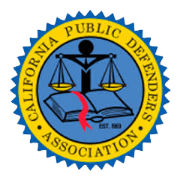Imagine going about your daily life when suddenly, you’re facing charges you don’t understand. The term “federal crimes” might sound like something out of a movie, but these are serious offenses with real-world consequences.
Federal crimes are violations of laws passed by the United States Congress. These offenses are investigated by federal law enforcement agencies and prosecuted in federal courts.
Table of Contents:
- What Are Federal Crimes?
- Comprehensive List of Federal Crimes
- Navigating The System
- FAQs about Federal Crimes
- What is the difference between a federal crime and a state crime?
- What are some examples of white-collar federal crimes?
- What happens if I am charged with a federal crime?
- Can I be charged with both a federal and a state crime for the same action?
- What are Civil Rights Violations, in a federal context?
- What does it mean if a crime involves ‘Interstate Commerce’?
- Crimes on Federal Land or Against Federal Employees
- Conclusion
What Are Federal Crimes?
A federal crime occurs when someone breaks a federal law. These laws cover a wide range of activities, from drug trafficking and money laundering to bank robbery and mail fraud.
Sometimes, an action can violate both federal and state laws. In these cases, law enforcement officials decide where the criminal case will be tried. The U.S. Attorney’s Office plays a key role in the federal criminal justice process.
Defining White-Collar Federal Crimes
White-collar crimes are a specific category of federal crimes, characterized by being non-violent. This includes offenses like various types of fraud and complex financial schemes.
Securities fraud and insurance fraud are examples of white-collar crimes. While these crimes may not involve physical harm, they can cause significant financial damage and erode trust in financial and other institutions.
Consequences You Face From Being Found Guilty
Penalties for federal crimes range from fines to substantial prison sentences. Many things influence the final verdict in Federal Court like the crime’s specifics and if any plea bargains occurred.
Comprehensive List of Federal Crimes
Breaking down this broad category into smaller groups can help you understand your situation better. Here’s a detailed look:
| Crime Category | Specific Crimes |
|---|---|
| Violent Crimes | Murder, Manslaughter, Kidnapping, Bank Robbery, Assault with a Deadly Weapon, Assaulting a Federal Officer, Hate Crime |
| Property Crimes | Arson, Theft, Bankruptcy Fraud, Credit Card Fraud, Extortion, Copyright Matters |
| Drug Crimes | Drug Smuggling, Drug Trafficking, Drug Manufacturing |
| Financial Crimes | Money Laundering, Counterfeiting, Securities Fraud, Tax Fraud, Health Care Fraud, Bank Fraud, Mortgage Fraud |
| Cybercrimes | Computer Hacking, Identity Theft, Cyberstalking, Online Scams, Distribution of Illegal Materials, Child Pornography |
| Public Corruption | Bribery, Embezzlement of Government Property, Officer Contempt |
| National Security Offenses | Economic Espionage, Terrorism, Advocating Overthrow of Government, Domestic Security |
| Crimes on Federal Land or Property | Crimes committed on:
|
| Immigration Offenses | Alien Reentry, Harboring Aliens, Falsely Claiming Citizenship |
| Other Federal Crimes |
|
This table offers a glimpse into the diverse range of actions regulated at the national level.
Where State and Federal Lines Blur
Federal and state crimes often overlap. A single act, like bank robbery, can lead to prosecution by both state and federal authorities.
Major drug crimes or large-scale fraud rings can also violate both state and federal laws. Deciding which entity handles the charges is a matter of interagency agreement, which can depend on many things.
Navigating The System
If you suspect you’re under investigation, seeking legal counsel is crucial. Federal agencies like the FBI or DEA usually conduct these investigations, gathering evidence to build a case.
Having a lawyer can be vital. Having an attorney from the beginning ensures you know all of your rights and the best possible route for you and your future.
Reporting and Finding Help
If you believe you’ve witnessed a federal crime, like a computer crime, knowing how to report it is important. Do not confront anyone directly.
Contacting the local FBI office is recommended. The FBI has offices nationwide and can guide you through reporting a federal crime.
Resources for Victims
Victims of federal crimes have access to support and resources. Federal law mandates various victim assistance programs.
These programs offer counseling, financial aid, and compensation for expenses. Victim Assistance Programs are essential tools for helping individuals rebuild their lives.
FAQs about Federal Crimes
Here we will explore some common questions surrounding federal crimes.
What is the difference between a federal crime and a state crime?
Federal crimes violate laws enacted by the U.S. Congress and are prosecuted in federal court, overseen by a federal judge. State crimes, on the other hand, violate laws enacted by a state legislature and are prosecuted in state courts.
Federal crimes often involve matters of national interest, interstate activity, or crimes against the federal government itself. State crimes handle a lot of local concerns that deal with state and people.
What are some examples of white-collar federal crimes?
White-collar federal crimes are non-violent offenses. Many of these include things that involve deceit or abuse of the law for gains, not of a violent nature.
Common examples include various types of fraud (such as securities fraud, insurance fraud, mortgage fraud, and health care fraud), embezzlement, money laundering, and tax evasion. White-collar crime often get in front of a grand jury.
What happens if I am charged with a federal crime?
You have legal rights when accused. Having an experienced attorney who understands the Federal process can assist with these steps:
- Investigation: Federal agencies like the FBI gather evidence.
- Arrest and Initial Appearance: You’ll be informed of the charges and your rights.
- Detention Hearing: A federal judge decides if you’ll be released or held in custody.
- Arraignment: You enter a plea (guilty, not guilty, or no contest).
- Discovery: Both sides exchange information and evidence.
- Plea Bargaining: Negotiations may occur to reach a plea agreement.
- Trial: If no plea agreement is reached, the case goes to trial.
- Sentencing: If convicted, the judge determines the punishment.
Can I be charged with both a federal and a state crime for the same action?
Yes, the same conduct can sometimes violate both federal and state laws. A common situation is if a bank robbery involves large amounts of money, a federal charge is common along with any state charges.
Both the federal government and a state government can prosecute you separately. This is not considered double jeopardy, and here is why.
What are Civil Rights Violations, in a federal context?
Civil rights violations, in a federal context, refer to actions that interfere with the rights guaranteed to individuals under the U.S. Constitution and federal laws.
Examples of acts are:
- Excessive Force or other actions by law enforcement.
- Hate Crimes: Criminal acts motivated by bias against a victim’s race, religion and so on.
- Human Trafficking
What does it mean if a crime involves ‘Interstate Commerce’?
Crimes related to “interstate commerce” often fall under federal jurisdiction. It refers to commercial trade, business, movement of goods or money, or transportation from one state to another.
Crimes impacting commerce:
- Drug trafficking across state lines
- Transporting stolen goods across state lines
- Internet fraud schemes targeting victims in multiple states
Crimes on Federal Land or Against Federal Employees
Federal crimes often involve acts against government employees:
- Assaulting a federal officer.
- Threatening a federal judge.
- Bribing a federal official.
- Damaging federal property like national parks, post offices, or federal courthouses.
Certain locations always make it a Federal Case:
- Crimes aboard Aircraft
- Crimes on Indian Reservations
- Crimes on government reservations
Conclusion
Federal crimes cover a wide range of offenses. The system is important to know.
Knowing there are real penalties. Realizing options if challenges show up proves no person is defenseless.
Getting advice early is very important.




